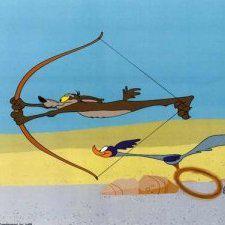Clay Shoot benefit Central NY R. Grouse Society
-
Similar Content
-
By mike rossi
Ruffed Grouse Society 451 McCormick Rd
Coraopolis PA 15108
(412) 262-4044
www.ruffedgrousesociety.org
February 13, 2014 For Immediate Release
Ruffed Grouse Society Expands Forest Habitat Effort with Creation of the American Woodcock Society Coraopolis, PA - The Ruffed Grouse Society (RGS) is proud to announce the creation of the American Woodcock Society (AWS), a branch of RGS initiated to expand forest habitat efforts and upland hunting opportunities to new landscapes across the nation. “The formation of the American Woodcock Society is a landmark event for forest conservation in the United States. The Ruffed Grouse Society has been the leader in woodcock conservation for decades. The creation of AWS expands existing efforts while advancing habitat creation and membership reach to additional regions that may not have ruffed grouse populations,” said RGS/AWS President and CEO John Eichinger. While grouse and woodcock share similar habitats, they don’t coexist across all landscapes, and AWS advances forest management and mission outreach to states that may not have grouse populations, especially in the southern United States where the majority of woodcock spend the winter months. Enhancing habitat in these regions also benefits many songbirds and other wildlife that rely upon young forest habitats. In addition, these regions continue to have a strong bird-hunting culture, and the habitat created by RGS/AWS will strengthen and expand these sporting traditions. “The goal of our organization is, and always has been, to preserve our sporting traditions by creating healthy forests for grouse, woodcock and other forest wildlife. At this crucial time in forest management from Alaska to the Gulf of Mexico, the AWS allows us to positively affect our nation’s forests and to spread awareness of our mission to a significantly larger group of supporters. The bottom line is that RGS and AWS will be able to collectively benefit more members, officials, conservationists and hunters who are passionate about the birds we love,” Eichinger concluded. The AWS will begin operations immediately, and anyone interested in AWS habitat efforts, chapters or membership can contact RGS/AWS at (412) 262-4044 or [email protected]. ***The Ruffed Grouse Society and American Woodcock Society are North America’s foremost conservation organizations dedicated to preserving our sporting traditions by creating healthy forest habitat for ruffed grouse, American woodcock and other wildlife. RGS and AWS work with landowners and government agencies to develop critical habitat utilizing scientific management practices.
Information on RGS/AWS, our mission, management projects and membership can be found on the web at: www.ruffedgrousesociety.org
.
-
By mike rossi
Pennsylvania could lose $27 million over bills to amend endangered species laws GOP measures would cost two state agencies more than 20% of their budgets, the U.S. Interior Department warns.
August 28, 2013 HARRISBURG — Republican-backed bills to give the Legislature more control over the protection of endangered and threatened wildlife could cost the state more than $27 million annually, according to the federal government.
If the bills become law, Pennsylvania could lose eligibility in two of the nation's oldest grant programs geared toward preserving, restoring and protecting wildlife and waterways, according to an Aug. 9 letter the state Game Commission got from the U.S. Interior Department's Fish and Wildlife Service.
"I have significant concerns with this bill and the risk it presents to the Game Commission relative to loss of federal funding," wrote John F. Organ, chief of the division of Wildlife and Sport Fish Restoration.
But Rep. Jeff Pyle, R-Armstrong, the prime sponsor of the House bill, said the legislation does not strip the Game or Fish and Boat commissions of their authority. Rather, he said, the bill, which was the subject of a public hearing Monday, is meant to check the commissions' authority.
Pyle said they are the only state agencies that do not have their policy decisions vetted through the Independent Regulatory Review Commission, which sets up public forums for new government regulations prior to final approval by lawmakers. The bill is needed, Pyle said, because the Game Commission made his local school district spend extra money to preserve Indiana bats, which are endangered, even though the bats were not on the land where a new school was being built. "Those guys are the judge, jury and executioner," he said.
The threat of losing federal money is "hollow," Pyle added.
House Republican Caucus lawyers, Pyle said, have assured him that the state would not lose federal money because other state agencies, such as the Department of Environmental Protection and the Department of Conservation and Natural Resources (DCNR) also have jurisdiction over environmental protection.
"We got a bunch of safety checks built into this thing," said Pyle.
Drew Crompton, chief of staff to Sen. Joe Scarnati, R-Jefferson, who has sponsored a similar bill in that chamber, said the federal government's concerns can "be easily addressed" in the legislative process.
But Rep. Steve McCarter, D-Montgomery, a critic of the bills, said the threat of lost federal revenue should be taken seriously. The bills are meant to appease industry at the expense of the environment, he said, because they would create a prolonged, 11-step process to having species listed or delisted as threatened and endangered through the Independent Regulatory Process.
"The chance of any species getting through the process would be impossible," McCarter said.
In addition to putting the commissions under the scrutiny of the regulatory review process, the bills call for the commissions, plus the state Agricultural Department and DCNR, to create a centralized database to replace the decades-old computerized system of endangered species and fauna.
The commissions argue that the database would jeopardize wildlife because it would pinpoint their locations.
The bills also would require the agencies to remove species from the endangered or threatened lists within two years if the agencies cannot produce "acceptable data" that the species' numbers remain weak. The agencies also could not define new endangered or threatened species if their numbers are acceptable outside of Pennsylvania, or if they are not already covered under the federal Endangered Species Act.
Those changes could make the state ineligible for federal funds, says Organ's letter to Game Commission Executive Director Carl Roe.
According to the letter, Game Commission could lose $19 million — or 24 percent of its 2012-13 budget — because it may not be eligible for the Pittman-Robertson Wildlife Restoration Program. The program dates to 1937 and is used to "restore, conserve, manage and enhance wild birds and mammals" while making their habitats accessible for hunting, shooting and other recreation.
The Fish and Boat Commission could lose $8.3 million — 29 percent of its 2012-13 budget — from the federal Dingell-Johnson Sport Fish Restoration Program. That program, started in 1950 and modeled after Pittman-Robertson, seeks to make fishing and boating more accessible to the public.
To be eligible for both grants, state have to have fish and wildlife agencies that have sole discretion over how revenue for fishing and hunting licenses are used. The agencies also have to have the authority to ensure "the conservation of fish and wildlife."
-
By mike rossi
Is this the new face of conservation? Is this a sincere promotion of the federal migratory bird hunting and conservation stamp? Are they mocking hunters who 1) boast about paying for conservation / being conservationists? 2) take pictures of themselves posing with harvested game? This was in Western New York, by the way and is a movement not an isolated incident... The money and the volunteer hours they are donating is no small piddly amount either... On a related note the University of California and other colleges have acknowledged that most wildlife biology graduates have no experience with hunting which is different than in the past and quote: "People without any exposure to hunting will soon be managing hunters"
-
Recently Browsing 0 members
No registered users viewing this page.




Recommended Posts
Join the conversation
You can post now and register later. If you have an account, sign in now to post with your account.